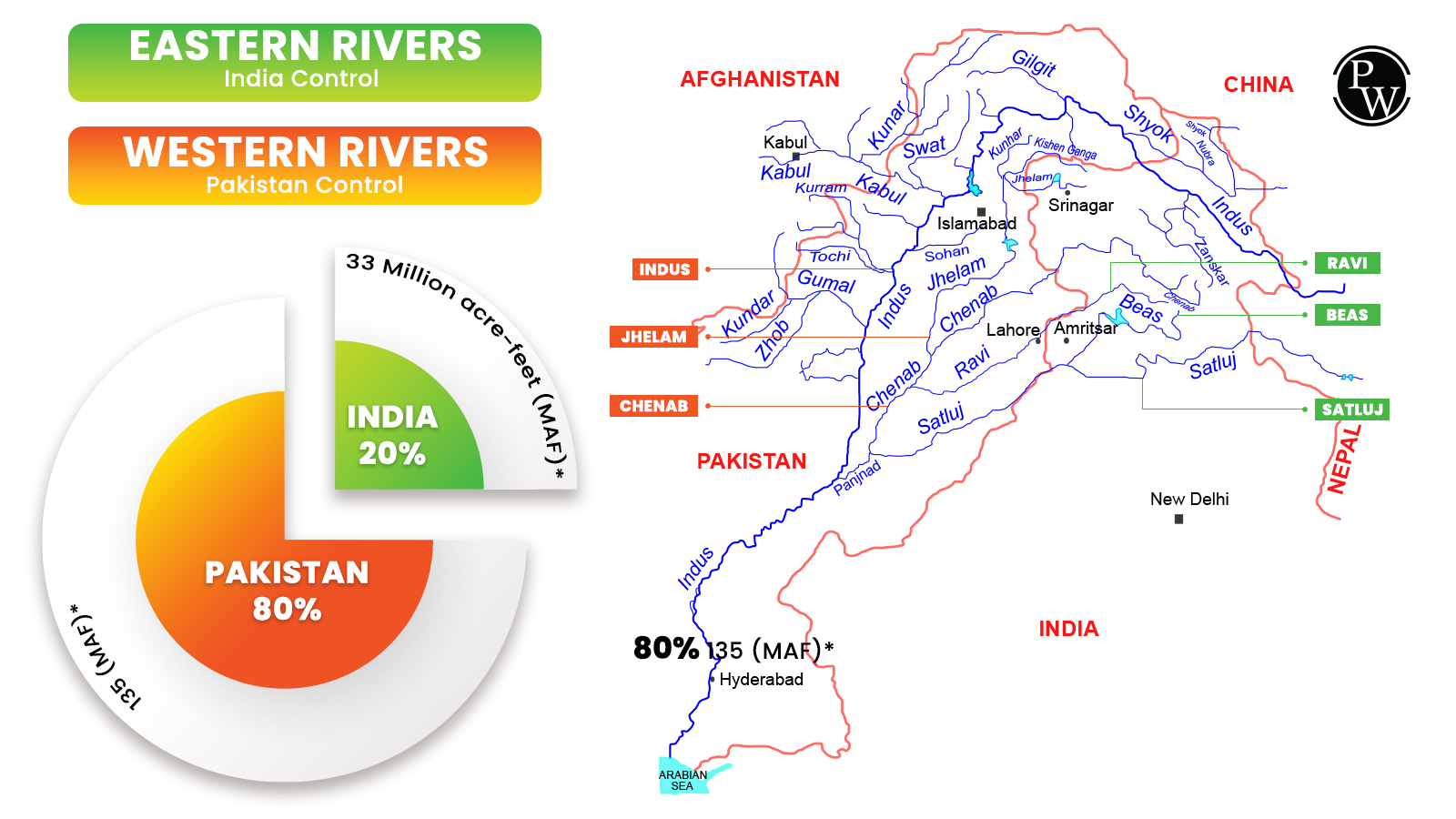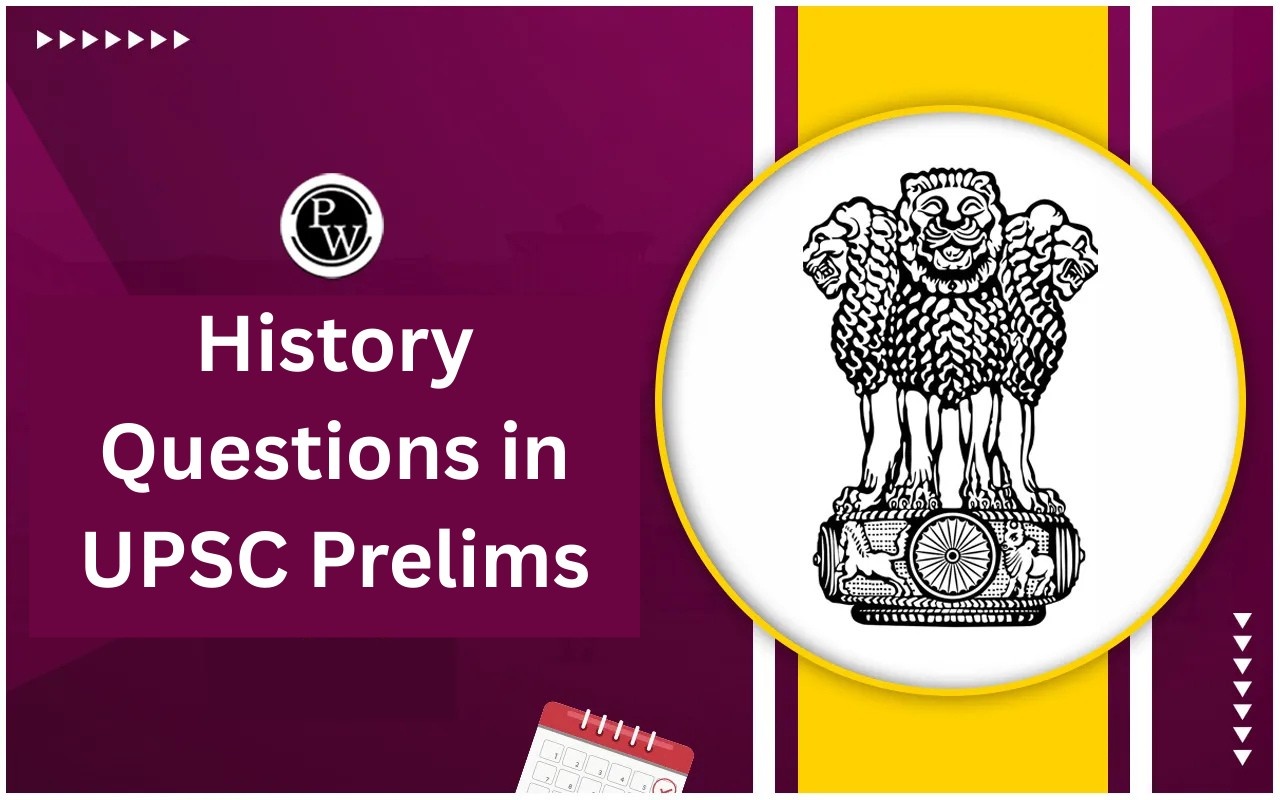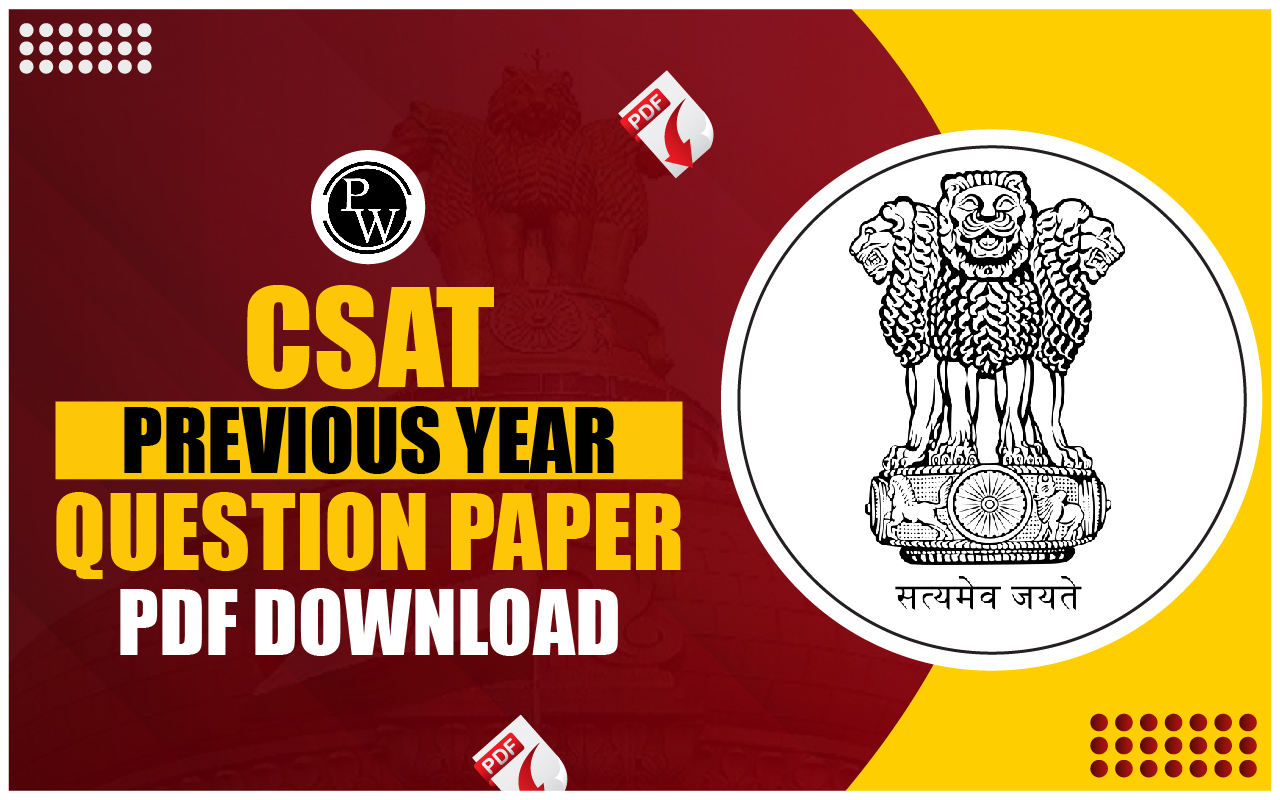
Indus Water Treaty, which was unilaterally suspended on 23 April 2025 by India following the Pahalgam terror attack, marking the first suspension in its 65-year history. This treaty was signed in 1960 between the Government of India and the Government of Pakistan to utilize the water of the Indus River System.
Brokered by the World Bank, the Indus Water Treaty allocates the use of the Indus River and its tributaries between the two nations. Over the years, this treaty has been a critical component in managing water resources and ensuring water-sharing cooperation despite the strained relationship between India and Pakistan.Indus Water Treaty Suspended
On April 23, 2025, India suspended the Indus Waters Treaty, marking a major diplomatic shift in response to the deadly Pahalgam terror attack that killed 26 people, including tourists. he move is widely seen as retaliation against Pakistan’s alleged backing of cross-border terrorism. India has placed the treaty "in abeyance" until Pakistan takes credible and irreversible steps to end its support for terrorism.As the treaty lacks an exit clause, India's unilateral action raises legal debates, and existing dispute resolution mechanisms may no longer apply. Here are the possible implications of this move on both countries:
India
- Stop sharing water flow data with Pakistan.
- Remove design restrictions on hydropower projects (e.g., Kishenganga, Ratle dams).
- Resume reservoir flushing to extend dam lifespans
Pakistan
- 80% of Pakistan’s irrigated land (16 million hectares), which depends on Indus waters, may be affected.
- Major cities like Karachi and Lahore face heightened water scarcity risks.
- Hydropower disruptions could worsen Pakistan’s electricity shortages.
India and Pakistan Water Treaty
To address the tensions between India and Pakistan, the Indus Waters Treaty (IWT) was signed in 1960 with the help of the World Bank. The treaty allocated the waters of the six rivers in the system between the two countries. These rivers are:- Indus River (flows mainly through Pakistan)
- Jhelum River (flows through both India and Pakistan)
- Chenab River (flows through both India and Pakistan)
- Ravi River (flows mainly through India)
- Beas River (flows mainly through India)
- Sutlej River (flows mainly through India)
What is Indus Water Treaty?
The Indus Water Treaty (IWT) is a landmark agreement that was signed by then-Indian Prime Minister Jawaharlal Nehru and President of Pakistan Ayub Khan in 1960. The World Bank played a crucial role in mediation and is also a signatory to it. This treaty governs the utilization of the waters of the Indus River system, which is one of the largest river basins in the world.The Indus Water Treaty date is 19th September 1960, on which decades of negotiations resulted in the successful agreement between India and Pakistan. IWT not only distributes water from the Indus and its tributaries but also allows both countries to use the other’s rivers for specific purposes that require little or no water storage.
For example, it permits small hydroelectric projects, such as under-construction projects in the Chenab Valley region. Over the years, this treaty has successfully managed water sharing between the two countries across cross-border rivers.
| Indus Water Treaty Overview | |
|---|---|
| Aspect | Details |
| Signed On | September 19, 1960 |
| Parties Involved | India and Pakistan |
| Brokered By | World Bank |
| Main Purpose | Regulate the sharing of water from the Indus River System. |
| Rivers Involved | Indus, Jhelum, Chenab, Ravi, Beas, Sutlej |
| Division of Rivers | Western Rivers: Indus, Jhelum, Chenab (Pakistan)
Eastern Rivers: Ravi, Beas, Sutlej (India) |
| Usage Rights | Pakistan: Full control over Western Rivers
India: Control over Eastern Rivers for irrigation, hydropower, and other uses with restrictions |
| Dispute Resolution | Mechanism for resolving disputes through neutral experts or arbitration |
| Key Bodies | Indus Commission: A Bilateral body to monitor and manage water sharing |
| Key Challenges |
|
| Outcome of IWT | Prevent water disputes and ensure fair distribution of water resources. |
Indus Water Treaty Rivers
The Indus Water Treaty divides the water of six major rivers that form part of the Indus drainage system. These rivers are the Indus and its tributaries, Jhelum, Chenab, Ravi, Beas, and Sutlej. According to the IWT:- The three western rivers (Indus, Jhelum, and Chenab) are allocated to Pakistan.
- The three eastern rivers (Ravi, Beas, and Sutlej) are allocated to India.
| Indus Water Treaty Rivers | |
| River Water Allocated to India | River Water Allocated to Pakistan |
| Ravi | Indus |
| Beas | Jhelum |
| Sutlej | Chenab |
This division of the rivers was a crucial aspect of the treaty, as it allowed both countries to develop and utilize the water resources within their respective regions. 
Also Read: Why Do You Want To Become IAS Officer?
Indus Water Treaty Main Points for UPSC 2025
The Indus Water Treaty is significant for UPSC aspirants because questions related to it can be asked in the UPSC Mains and UPSC Prelims 2025 exams. For instance, UPSC may ask about tributaries of the Indus River in Prelims or about the key provisions in the UPSC Mains exam. Here are the key points related to the Indus Water Treaty for UPSC 2025:- Objective: The Indus Water Treaty aims to ensure the equitable and reasonable utilization of the Indus River system by both India and Pakistan.
- Water Allocation : The three western rivers are allocated to Pakistan, while the three eastern rivers are allocated to India.
- Dispute Resolution Mechanism The treaty establishes a Permanent Indus Commission, which serves as a bilateral mechanism for the implementation of the treaty and the resolution of any disputes that may arise.
- Hydropower Development: The treaty allows both countries to construct hydropower projects on the allocated rivers, subject to certain restrictions and prior notification requirements.
- Flood Control: The treaty also includes provisions for the exchange of flood-related data and the coordination of flood control measures between the two countries.
- Conflict Prevention: The Indus Water Treaty has been instrumental in preventing water-related conflicts between India and Pakistan, even during periods of political tensions and military conflicts.
| UPSC Related Articles | ||
| UPSC Mains Subjects | IAS Officer After 12th | Newspaper for UPSC Exam |
| UPSC Mains Syllabus | Pratigya Diwas | UPSC Prelims |
Indus Water Treaty FAQs
What are the important points of the Indus Water Treaty?
Which river is given to India by the Indus Water Treaty?
What are the advantages of the Indus Water Treaty for India?
Who mediated the Indus Water Treaty?
Which two countries share the water of the river Indus?










